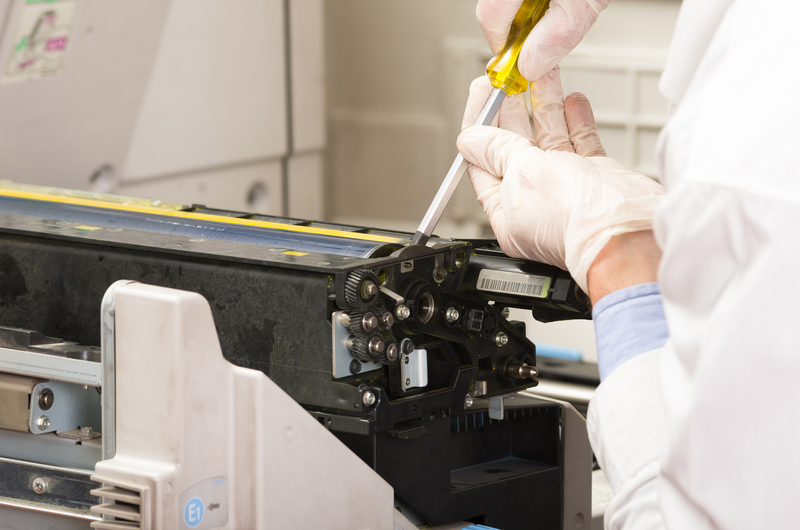Eco-Friendly Waste Collection at Home
Posted on 04/09/2025
As environmental concerns rise, many households are seeking ways to adopt eco-friendly practices. One of these practices is eco-friendly waste collection at home. This process not only helps in reducing waste but also minimizes the negative impact on the environment. In this article, we will explore various ways to make your waste collection more eco-friendly.
Understanding Different Types of Waste
Before diving into the methods of eco-friendly waste collection, it's crucial to understand the different types of waste we generate:
- Biodegradable Waste: Includes food scraps, garden waste, and other organic materials that decompose naturally.
- Recyclable Waste: Consists of paper, cardboard, plastic, glass, and metals that can be reprocessed and used again.
- Non-Recyclable Waste: Materials that cannot be recycled, such as certain plastics and hazardous materials.

Steps to Start Eco-Friendly Waste Collection
Embarking on an eco-friendly waste collection journey can be simple and effective with these steps:
1. Segregate Your Waste
Separating waste into different categories is the first step. Use separate bins for biodegradable, recyclable, and non-recyclable waste. This makes it easier to manage and dispose of each type appropriately.
2. Composting
Composting is an effective way to handle biodegradable waste. Setting up a compost bin in your backyard or using a composting machine can turn kitchen scraps and garden waste into valuable compost for your garden.
3. Recycle
Ensure that you clean and sort paper, cardboard, plastic, glass, and metals before sending them off for recycling. Familiarize yourself with local recycling guidelines to prevent contamination.
4. Reduce and Reuse
Minimizing waste production is the most sustainable approach. Opt for reusable products instead of disposables. Repair and repurpose items whenever possible instead of discarding them.
Tips for Effective Eco-Friendly Waste Collection
Here are some practical tips to make your eco-friendly waste collection more efficient:
- Educate the Household: Ensure all family members understand and participate in waste segregation and recycling efforts.
- Use Eco-Friendly Products: Purchase products with minimal packaging, and prefer items made from recycled materials.
- Avoid Single-Use Plastics: Replace single-use plastics with biodegradable or reusable alternatives like cloth bags, stainless steel straws, and glass containers.
- Monitor Waste Production: Keep an eye on the type and amount of waste your household generates and look for ways to reduce it.
Pros and Cons of Eco-Friendly Waste Collection
Pros
- Environmental Benefits: Reduces landfill waste, lowers pollution, and conserves natural resources.
- Cost Savings: Potential reduction in waste disposal costs and purchasing fewer disposable items.
- Healthier Living Space: Encourages a cleaner and more organized home environment.
- Composting Benefits: Produces nutrient-rich compost for gardening, reducing the need for chemical fertilizers.
Cons
- Initial Effort: Setting up a system for waste segregation and composting requires time and effort.
- Space Requirements: Composting and segregating waste may require additional space, which can be a constraint in smaller homes.
- Consistency: Sustaining these practices requires commitment and persistent effort from all household members.

Takeaways
- Segregate waste into biodegradable, recyclable, and non-recyclable categories.
- Composting is a viable option for managing kitchen and garden waste.
- Recycling correctly can significantly reduce the amount of waste you send to the landfill.
- Reducing and reusing products is the best way to minimize waste generation.
- Involvement from all household members is crucial for success.
Conclusion
Eco-friendly waste collection at home is a practical and impactful way to contribute to environmental sustainability. By understanding the different types of waste and implementing effective segregation, composting, recycling, and reduction practices, you can significantly lower your ecological footprint. Despite the initial effort required, the long-term benefits for both the environment and your household are substantial. Start making these changes today, and inspire your family and community to adopt eco-friendly waste management practices as well.
Latest Posts
Cutting Down Waste in the Workplace


 office@benandjerry.org.uk
office@benandjerry.org.uk https://benandjerry.org.uk/
https://benandjerry.org.uk/

